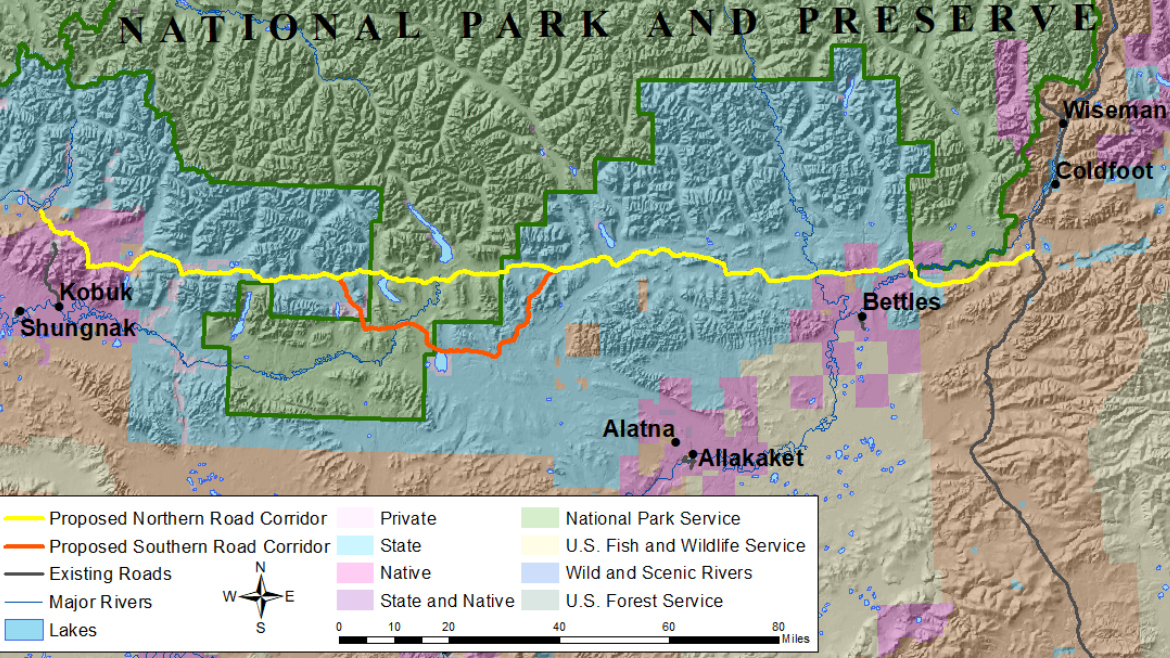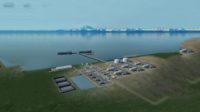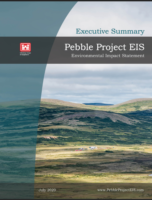The federal government is suspending plans to build a 211-mile private mining access road in Alaska set to cross national park and federally managed land for the first time, saying the Interior Dept. needs to review “significant deficiencies” in analyses used to authorize the project under the Trump administration.
The proposed Ambler Mining District Industrial Access Road would run east-west connecting the James W. Dalton Highway to the Ambler Mineral Belt in northwestern Alaska. There is currently no road connecting communities near the mineral belt to other areas.
Because the road is so remote, plans call for construction of four maintenance stations with air strips and 44 material sites to source gravel along its route.
The US Army Corps of Engineers and US Bureau of Land Management have estimated the cost of building the gravel road and related work along the selected route at about $579 million, but also note that building it along another considered route could cost as much as $1 billion.
BLM and the Corps approved the road plan in 2020 and officials agreed to issue a 50-year right-of-way for the Alaska Industrial Development and Export Authority, the state public corporation working to develop the project.
But the Biden administration reversed that course in a federal district court filing Feb. 22, claiming that the US Interior Dept. had identified problems with the approval’s underlying analyses related to the National Environmental Protection Act, National Historic Preservation Act and Alaska National Interest Lands Conservation Act, which would need to be redone.
In response to a legal challenge filed by environmental advocates and Alaska Native groups, the government said in a statement that it would suspend the right-of-way for the road during the review “to ensure that no ground-disturbing activity takes place that could potentially impact the resources in question.”
Earlier in February, the Alaska development agency and Ambler Metals, the joint venture of Trilogy Metals Inc. and South32 Limited pursuing copper and other minerals in the area, announced plans to spend as much as $59.3 million on geotechnical investigations, surveys, environmental studies, engineering and other work related to the project this year.
The Interior Dept.’s suspension of the right-of-way could halt some or all of that work. The Alaska agency criticized the move to review the plans. “This is a thinly veiled attempt to shut down the Ambler Access Project by any means necessary, including a total disregard for robust multi-year, multi-million-dollar reviews, due process, and legally binding agreements,” Chair Dana Pruhs said in a statement.
Tjhe state agemcy has highlighted the road project as a key link for the mining district, which it says would support more than 3,900 jobs with combined annual wages of more than $300 million once mines are operational.
The road would cross 26 miles of BLM-managed land, 26 miles of Gates of the Arctic National Preserve and traditional homeland of Alaska Native communities including the Koyukon, Tanana Athabascans and Iñupiat peoples. Opponents of the plan say it could have negative impacts on the environment and on local peoples’ subsistence lifestyles, and that the earlier environmental review of the project didn’t appropriately consider the potential impacts of related items such as gravel mines along the route.
Brian Ridley, president of the Tanana Chiefs Conference, an Alaska Native group suing to stop the project, said in a statement that the proposed road “represents a fundamental threat to our people, our subsistence way of life and our cultural resources.”





Post a comment to this article
Report Abusive Comment